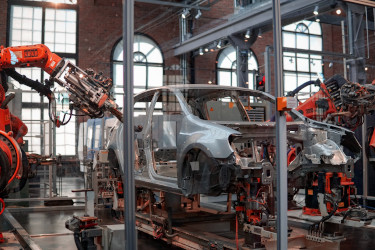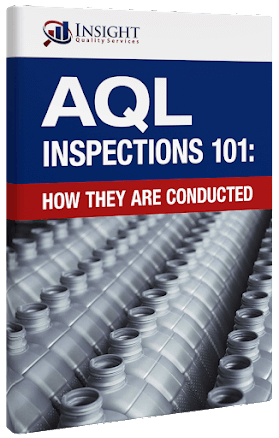What is First Article Inspection and Why is it Important?



Table of Contents
Imagine that you’ve hired an injection molding factory in China to produce a precision plastic automotive part.
The dimensions of the part are critical, and you’ve contracted with a third-party inspection company to conduct a final random inspection.
100% of the parts in your purchase order have been completed, but a defect has been discovered that will require almost half of the pieces to be scrapped and remade. Furthermore, the timing of this order is critical and it is hard not to be disappointed by the inefficiency.
Conducting a during production (DUPRO) inspection would have helped you catch the issue earlier in the production process, as these are conducted once 20% of units are produced.
However, in certain industries and with certain production processes, there is another type of inspection that is commonly used to catch issues even earlier – namely, the first article inspection, or FAI.
In this article, we discuss what FAI is, when it is used, and why it is important to certain importers.
What is First Article Inspection (FAI)?
First article inspection is the inspection of one to three pieces from the start of the production run.

It is important to note that the FAI is not limited to a single piece, as the name might imply, and that these pieces do not specifically have to be the very first ones. They can also be randomly selected from an initial lot.
It should also be noted that these pieces must come from the mass production stage and that FAI is different from inspecting an approval sample.
Approval samples, also called “golden samples,” are perfectly-produced units that are made prior to mass production. This matters because they are produced by the R&D department using different people, processes, and equipment than the units that are mass-produced.
During FAI, mass-produced pieces are inspected to ensure that all properties and measurements are completely in line with the buyer’s product specifications, which should be provided with the purchase order.
Once this has been verified, production can be resumed and the rest of the order can be produced.
FAI is best suited to certain industries and types of production methods, so let’s discuss what they are.
When and Why are First Article Inspections Conducted?
First article inspection is generally associated with specific industries, namely, the aerospace and defense, automotive, electrical and electronics, and medical device industries.
These are industries where precision is paramount and the dimensions of production parts are critical.

In addition, some industries have specific procedures that must be followed, such as the AS9102 standard in the aerospace industry.
An in-depth FAI helps to ensure that everything is right with all equipment, settings, and materials before continuing with production and finishing the rest of the purchase order. It helps the factory to reduce waste and to prevent time-consuming and costly reworks.
They can generally be conducted by a technician or the QC personnel at the factory, although third-party QC companies like ours can help with this if needed.
In general, when relying on the manufacturer for an FAI, it is important that you have confidence in their overall quality management system (QMS). For this reason, it is important to conduct a factory audit prior to working with any new supplier.
It is also important to keep in mind that first article inspection is not ideally suited to all products and industries.
When it comes to low-cost consumer products, a standard pre-shipment or DUPRO inspection is generally more than adequate.
Conclusion:
First article inspection plays an important role in industries that require high-precision parts, but for low-cost consumer products, their application is limited.
It is important to keep in mind that FAI is different from inspecting an approval sample because it is conducted on products from mass production.
When relying on a manufacturer to conduct the FAI, you must have confidence in their quality management system. That way, you can have more confidence in the results. Conducting a factory audit before placing a purchase order helps to verify the adequacy of their QMS.
For many product categories, normal pre-shipment or DUPRO inspections can help you to ensure product quality and catch any issues before your order is shipped.
To learn more about product inspections, we recommend reading the following white paper.
How to Prepare for a Quality Inspection
Are you thinking of hiring a third-party inspection company?
If so, you need to be properly prepared. No one knows your product better than you do. So, make sure you give your service provider the information they need to ensure that your inspections are a success.
Download this free guide to successfully preparing for your product inspections.

AQL Inspections 101: How They are Conducted
Authors



3 comments
Ava Murphy
My favorite part of your blog is when you said to ensure that everything is right with all equipment and materials before continuing with the production, FAI must be considered. This reminds me of the aerospace industry which deals with the production of materials and tools that require precision. I could imagine how a routine industrial component inspection could ensure that all the products will undergo proper quality control process.
Kerry A. Evanoff
I take a bit of exception to the statement that the first article process has limited application for low cost product.
If you want to manufacture most efficiently, making sure the material and parts you receive from either outside suppliers or other departments in the same company are correct and allow maximum speed and productivity in final assembly. This means the first article process absolutely has significant application in producing low cost items as anything that inhibits maximum productivity and production will increase costs.
Insight Team
Thanks for the comment. If production timing is long enough, such as large volume premiums, a first article inspection would certainly be beneficial. Incoming raw material inspections would be applicable in verifying parts and components received from outside suppliers. FAIs are but one component in quality control and it is important for each client to determine if applicable to their needs.